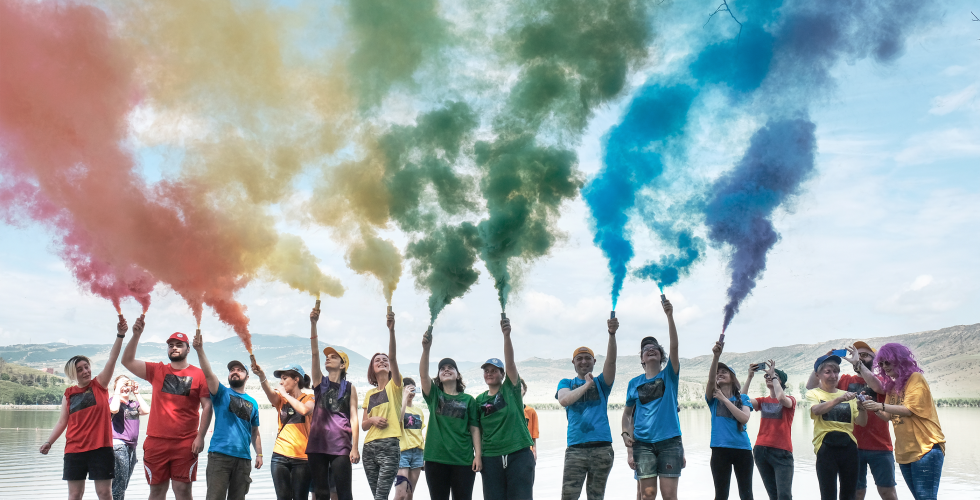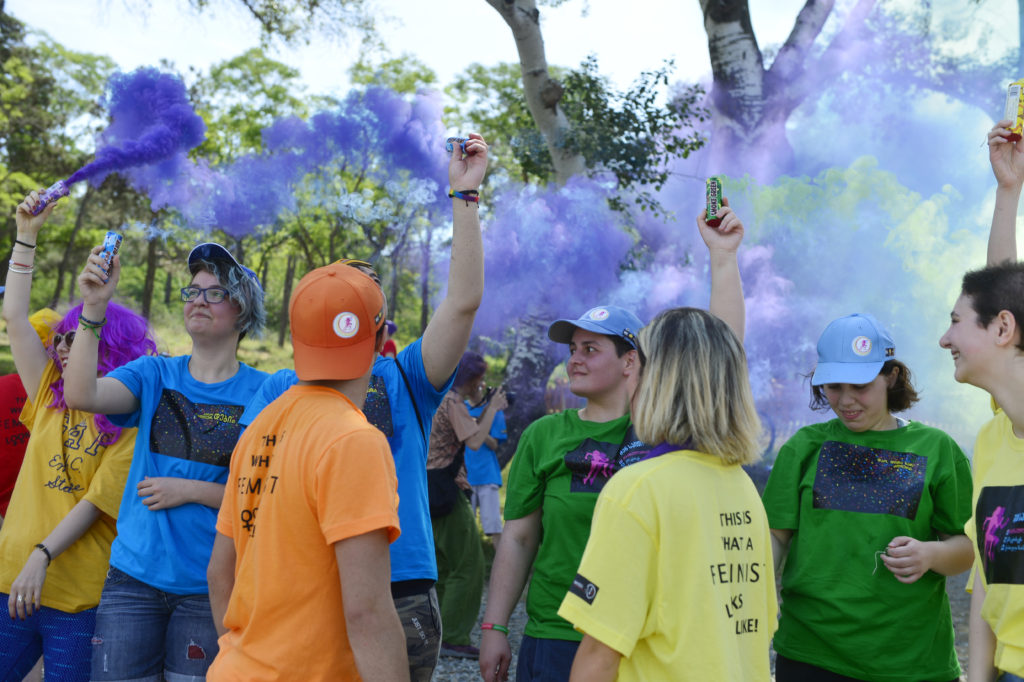
“We Need to Build an Intersectional Movement”
Homophobia, biphobia, and transphobia are widespread in Georgian society and, at the same time, the authorities lack the will and ability to protect LGBTQI people from threats, harassment, and violence. RFSL supports local organisations that, despite the risks, continue to push for substantial change.
The organisation WISG – Women’s Initiative Supporting Group – is a feminist organisation with more than 20 years of experience in the field of women’s and LGBTQI people’s rights. Their main target group is lesbian, bisexual, queer, and trans women in Georgia.
“The LGBTQI community is in many ways the most marginalised community in Georgia. Because of systemic homo-, bi-, and transphobia, LGBTQI people especially lack access to education, work, healthcare, and social welfare services, which often leads to precariousness, homelessness, and poverty. Also, many are excluded from their families once they reveal their sexual orientation or gender identity. This adds another layer of vulnerability as they lose their social safety net,” said Eka Tsereteli who is the Director of WISG.
Eka and her colleagues believe that it is important to understand how the issue of homophobia is politicised and manipulated in Georgia. Homo-, bi- and transphobic narratives are used by politicians to create social unrest that distracts from the community’s real problems in the country.
“People should not make the mistake of just looking at legislation when assessing the situation for LGBTQI people’s rights. What is written on paper does not always correspond to reality. Several laws have been passed to make the country look good on the surface, but we who live here can see that nothing is being done to eliminate systemic or social homo-, bi-, and transphobia. There are no state initiatives that would lead to substantial change,” said Nino Kharchilava who is the head of the Community Empowerment direction at WISG.
WISG is critical of how events such as Tbilisi Pride are used by those in power – partly to create social unrest but also to paint a false picture that the rights of LGBTQI people are being taken seriously. Such events, which are often planned and realised without the inclusion of the wider community, lack a proper security perspective and can, in fact, lead to increased insecurity for and violence against LGBTQI people rather than positive social and systemic transformations, according to Nattan Guliashvili, Head of Media and Communications at WISG.
“In Georgia, it is clear that Pride cannot be equated with the increased well-being for LGBTQI people. Going out one day a year with a symbolic flag doesn’t help anything if there is no political will for real change. We have to live through the remaining 364 days of the year as well,” said Nattan Guliashvili.
According to recent surveys referred to by WISG, 87% of the population have a negative attitude towards LGBTQI people. We ask what it is like to be an advocate for the rights of LGBTQI people in such an environment? What driving forces make one overlook the obvious risks?
“We try to stand up for our rights and confront the system but it is very hard when the system that you are resisting is so much more powerful than you are. But we try to think that someone must dare to act for systematic change. It is our freedom of speech and existence that is at stake,” said Nino Kharchilava.

One way for WISG to drive change is to create safe and secure meeting spaces for LGBTQI people. They often join forces with other groups in civil society to find ways to cooperate and to create a sense of community.
“For example, through the community events, such as Queer Sisters Run, we collaborate with other activist groups to address urgent issues like environmental crisis through an intersectional approach. We need to build an intersectional movement and form wider alliances to address systemic inequalities and achieve progressive social transformation,” said Nino Kharchilava.
RFSL has been working in Georgia since 2014. By becoming a member or contributing with financial or moral support, you contribute to supporting the imperative work of organisations such as WISG.
“It is thanks to different kinds of support that we can continue to develop our organisation and work for change. Without the support of various actors in Europe, the work for equality, gender equality, and sexuality would simply not be possible,” said Eka Tsereteli.
